Guesty vs. Lodgify: Side-by-Side Comparison

If you are choosing between Guesty and Lodgify, you already know the stakes are high. The wrong decision can leave you juggling clunky tools, paying for features you never use and spending more time fixing problems than welcoming guests. The right property management system, on the other hand, can automate repetitive tasks, prevent double bookings and give you the data you need to grow your vacation rental business with confidence.
Guesty and Lodgify are two of the most well-known names in the short-term rental software space. Both promise to help property managers manage listings, streamline operations and drive direct bookings. On the surface they look similar, but in practice they serve different types of businesses and come with very different trade-offs.
In this comparison, we will go beyond the marketing claims to see how Guesty and Lodgify really perform in the areas that matter most. By the end, you will have a clear picture of which platform matches your business needs today and can scale with you in the future.
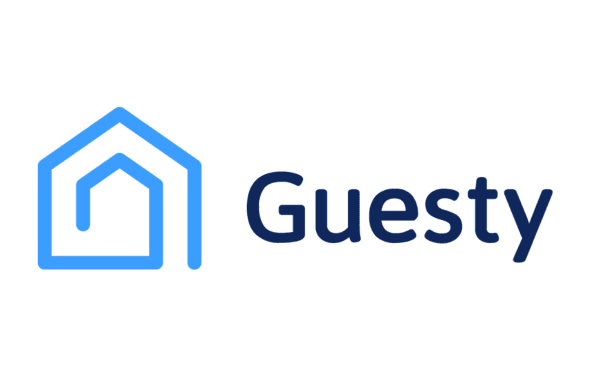
Guesty at a Glance
Guesty offers a wide range of tools designed for property managers who want to centralize their operations and expand their reach across multiple channels. The platform includes a built-in channel manager, automation for guest communication and reporting features to track performance. For larger operations, Guesty also provides advanced analytics, dynamic pricing tools and the Guesty Locks Manager for remote access control.
One of Guesty’s biggest selling points is the size of its integration marketplace. You can connect with hundreds of third-party tools to customize your setup. However, this flexibility comes with trade-offs. Many of these features come from acquisitions or external providers, which can result in a fragmented user experience. Operators sometimes find that different parts of the platform have their own quirks and learning curves.
Guesty can be a powerful choice for rental managers handling complex portfolios, but it is not always the most straightforward option. The combination of bolt-on tools and extra fees for certain features can create a steeper learning curve and make pricing less transparent. For teams without the time or technical expertise to manage these moving parts, onboarding and daily use can be more demanding than expected.
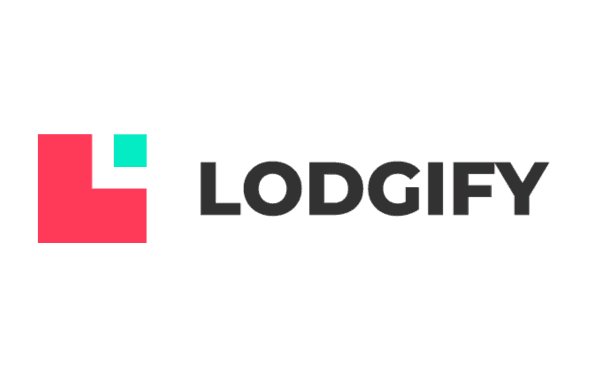
Lodgify at a Glance
Lodgify is best known for its intuitive website builder and focus on direct booking capabilities. The platform is popular with newer hosts and smaller rental managers because it is easy to set up and has a user-friendly design. With built-in templates and customization options, creating a branded booking site does not require coding or design experience.
Lodgify also includes essential features like payment processing, basic channel management and automated guest communication. While it handles the fundamentals well, its automation tools are less advanced than those of some competitors. This means more manual work for recurring tasks or complex operational setups.
For operators planning to grow into larger portfolios, Lodgify’s limitations can become more noticeable. The platform supports connections to major booking platforms but lacks the deeper integration layers and advanced analytics that help optimize revenue at scale. As a result, many property owners who start with Lodgify eventually look for an all-in-one solution that combines strong direct booking tools with more advanced capabilities.
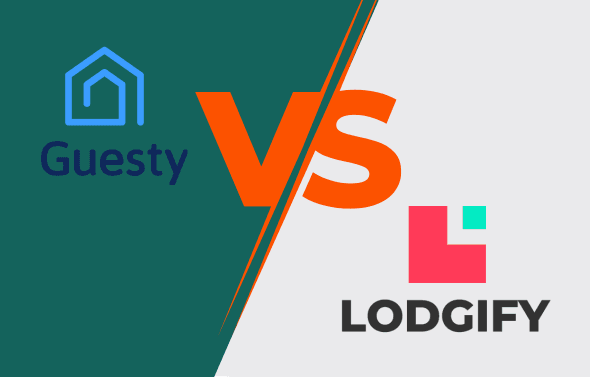
Key Differences Between Guesty and Lodgify
Feature category | Guesty | Lodgify |
Target user | Professional operators and larger portfolios | New hosts and small-scale operations |
Integrations | Large marketplace with hundreds of partner connections | Limited integrations focused on core booking channels |
Website tools | Booking engine for existing sites, requires setup | Built-in website builder with templates and editing tools |
Automation | Extensive automation, scheduling and task features | Basic automation suitable for simpler workflows |
Reporting & analytics | Advanced reporting available, often as add-ons | Standard reports with limited customization |
Pricing structure | Custom pricing based on listings and features | Transparent tiered pricing with published rates |
Customer support | Ticket-based system, live support on select plans | Email support for all, live chat/phone on higher plans |

Guesty vs. Lodgify: Property Management Software Capabilities
The strength of any property management platform comes down to how well it supports daily operations. From task management to payment processing, the right mix of tools can make it easier to stay organized, deliver a better guest experience and keep your team aligned.
Guesty
Guesty provides a broad selection of core features for operational control. The platform includes automation for guest communication, scheduling and property-specific task management. It also offers payment processing, trust accounting options and integrations with a wide range of service providers. The unified inbox helps centralize messages, although its layout can feel crowded for new users.
Lodgify
Lodgify covers the basics with guest communication tools, integrated payment processing and simple task scheduling. While it is effective for smaller teams, its automation is less advanced and it does not provide the same depth of reporting or trust accounting options. Marketing tools are available, but they are mostly tied to the built-in website builder and do not extend as far into multichannel campaigns.
Both platforms give property managers the foundation needed to keep operations running, but their focus areas differ. Guesty leans into a feature-rich approach that can handle complex workflows, while Lodgify prioritizes ease of use and simplicity over advanced operational depth.

Guesty vs. Lodgify: Channel Management & Distribution
For many property managers, a reliable channel manager is the backbone of occupancy and revenue growth. It keeps calendars accurate across platforms, reduces the risk of overbookings and ensures pricing updates are reflected everywhere guests might book.
Guesty
Guesty supports a wide range of booking platforms and uses its channel managers to keep availability and rates in sync. It offers connections to major OTAs and supports features like dynamic pricing updates. However, the experience can vary depending on the specific integration and some connections rely on external tools rather than being fully native.
Lodgify
Lodgify connects to leading booking sites like Airbnb, Booking.com and Vrbo. The sync process is straightforward and user-friendly, making it a good fit for smaller portfolios. However, it does not yet offer the same level of seamless integration or advanced sync logic that more robust platforms provide. Lodgify does allow listings to appear on Google Vacation Rentals through its direct booking setup, but customization options are more limited.
Both platforms make it easier to maintain a presence across multiple booking channels. The difference comes down to depth of integration and the additional features, such as advanced sync rules and unified inbox capabilities, that can make distribution more efficient and less time-consuming.
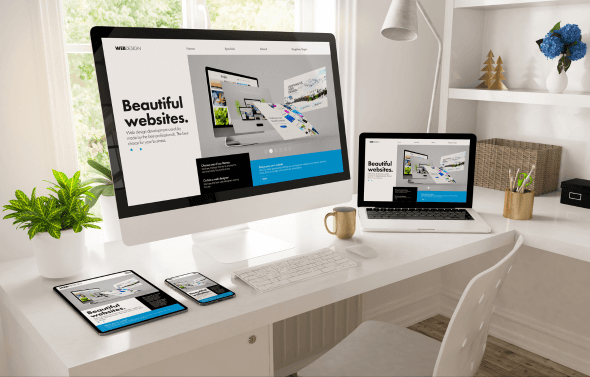
Guesty vs. Lodgify: Website Builder & Direct Booking
A strong website builder with direct booking functionality can be a powerful way to reduce reliance on third-party booking sites and keep more of your revenue in-house. It also gives you more control over branding, guest experience and the ability to promote repeat stays without extra booking fees.
Guesty
Guesty offers a booking engine that can be embedded into existing sites and supports direct bookings. While the functionality is solid, it often requires more setup and configuration to match your brand’s design. The platform supports integration with Google Vacation Rentals, which can help increase visibility, but some users prefer a more streamlined website creation process.
Lodgify
Lodgify is widely recognized for its website builder, which allows you to create a professional-looking booking site without coding. It offers templates, drag-and-drop editing and built-in payment gateways. The platform’s direct booking tools connect to Google Vacation Rentals and other channels, making it easier for guests to book directly. Even on the starter plan, you can launch a functional site quickly, while higher tiers like the professional plan unlock additional design flexibility and customization.
Both platforms make it possible to accept direct bookings, but their approaches are different. Guesty integrates booking functionality into existing sites, while Lodgify focuses on making it easy to build a site from scratch. The best choice depends on whether you want to create something new or enhance what you already have.

Guesty vs. Lodgify: Pricing and Value
When comparing vacation rental software, price is about more than just the monthly fee. The true value comes from what is included in the plan, how much you will spend on add-ons and whether the features match your growth plans.
Guesty
Guesty generally offers quotes based on portfolio size and selected features, which makes direct comparisons harder. While this custom pricing approach can work for large teams, operators often find that essential capabilities come at an additional cost. Over time, recurring add-ons and booking fees can make the total investment higher than expected, particularly for those who need advanced configurations.
Guesty pricing tiers (Estimated)
Tier | Target user | Typical monthly cost* | Notes |
Lite | 1–3 listings | ~$39–$49 per month | Limited features, designed for single-property hosts |
Pro | 4+ listings | Custom pricing (often 2–5% of booking revenue) | Includes most core features, but some add-ons cost extra |
Enterprise | 200+ listings | Custom pricing | Designed for large portfolios, dedicated support, advanced configurations |
Lodgify
Lodgify takes a more straightforward approach, with published rates for its starter plan, mid-tier options and the ultimate plan. This makes it easier for new hosts and small-scale operations to budget effectively. However, costs can increase as you add listings or require more advanced functionality. For operators running larger or more complex portfolios, certain limits in features may outweigh the lower upfront cost.
Lodgify pricing tiers (as of 2025)
Tier | Target user | Monthly cost (Annual billing) | Notes |
Starter | New hosts or small-scale operations | $17 per month | Basic features, 1.9% booking fee, limited customization |
Professional | Growing portfolios | $46 per month | Removes booking fee, unlocks advanced features and integrations |
Ultimate | Established operators | $75 per month | All features included, priority support, premium integrations |
Both platforms can provide value depending on your goals. Guesty aligns more with operators seeking an enterprise-grade solution, while Lodgify appeals to those wanting simple, predictable pricing at the outset.

Guesty vs. Lodgify: Customer Support & User Experience
Support quality and ease of use can make or break your experience with a software platform. Even the most feature-rich system will cause headaches if you cannot get timely help or if navigating the interface feels like a chore.
Guesty
Guesty offers support primarily through a ticketing system, with live help available for certain plans. While the knowledge base is extensive, response times can vary and some users report challenges getting immediate assistance during peak periods. The platform’s depth of features also means there is a learning curve, especially for teams new to more complex operational software. Feedback on review platforms often praises its capabilities but notes that mastering them can take time.
Lodgify
Lodgify provides email support for all plans, with live chat and phone support available on higher tiers. Its interface is generally easier to navigate, which can be a plus for small-scale operations or new hosts. While many customers are satisfied with the onboarding process, some note that response times during busy seasons can be slower than expected. On review platforms, Lodgify is often recognized for being approachable but less robust when it comes to handling advanced operational needs.
In both cases, the balance between usability and support responsiveness depends on your priorities. Guesty can handle complex portfolios but may require more training, while Lodgify is quicker to pick up but has fewer support channels on entry-level plans.

What Do Guesty and Lodgify Have in Common?
Despite their differences in approach, Guesty and Lodgify share a number of strengths that make them popular choices for vacation rental operators. Both are designed to simplify daily operations and give hosts more control over their bookings and guest interactions.
Each platform offers:
A centralized dashboard for managing properties and reservations
Messaging tools to stay in touch with guests before, during and after their stay
Calendar syncing with major booking channels to reduce manual updates
Access to online booking engines for capturing reservations directly
Reporting tools to track performance over time
For property managers who are primarily focused on keeping calendars accurate, handling guest communication smoothly and taking payments online, both Guesty and Lodgify can deliver a functional, reliable setup. However, sharing similar core functions does not mean they are interchangeable. The way these tools are implemented and the limitations in each platform can have a big impact on your overall experience.

What’s Missing From Both?
While Guesty and Lodgify each bring valuable capabilities to the table, there are areas where neither platform fully delivers. For operators managing growing portfolios or looking to maximize efficiency, these gaps can be a deciding factor.
Some of the most common limitations include:
Deeper integration between tools to reduce the need for multiple logins and manual data entry
More flexible automation that adapts to different property types and operational workflows
Stronger revenue optimization features that go beyond basic pricing updates
Consolidated communication systems to manage guest, owner and team messages in a single view
Broader partner connections to support marketing, distribution and operational add-ons without custom workarounds
For many operators, the challenge is finding a platform that combines flexibility, advanced tools and ease of use in one package. That’s where it can make sense to look beyond Guesty and Lodgify to explore other solutions designed to bridge these gaps.
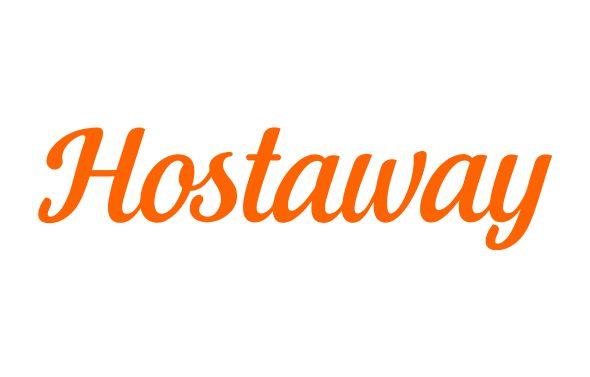
Exploring Alternatives
If you have explored both Guesty and Lodgify and still feel like something is missing, you are not alone. Many operators find that while these platforms cover important functions, they also require trade-offs that can affect efficiency and growth over time.
An alternative worth considering is a solution that combines high-quality integrations, automation that adapts to your workflow and reliable connections to major booking channels all while maintaining a consistent user experience. The ideal platform should feel cohesive from the moment you log in, with every tool working together to save time and reduce complexity.
Hostaway is one example of a platform built with this philosophy in mind. It is designed to bring together distribution, automation and performance tracking in one place, making it easier for teams to stay organized and focus on growth. With a strong reputation for stability, scalability and hands-on support, it offers an option for those who want more from their software without sacrificing usability.

Choosing the Right Platform for Your Growth
Picking between Guesty and Lodgify comes down to what you value most. Guesty delivers a broad, feature-rich environment that can support complex operations, but it can also feel more complicated and costly over time. Lodgify offers a streamlined, approachable experience with strong website tools, yet it may not scale as effectively for larger or more demanding setups.
If you want the strengths of both approaches without the compromises, it makes sense to explore alternatives designed with growth, stability and flexibility in mind. Hostaway fits that role, offering a cohesive platform that unites distribution, automation and performance tracking backed by a team known for responsive, expert support.
Choosing software for your short-term rental business is not just about today’s needs. It is about finding a partner that can adapt as you grow. If you are ready to streamline operations, reduce complexity and set your business up for long-term success, Hostaway is ready to help you get there.
FAQs About Guesty and Lodgify
1. Can I migrate my existing data from Guesty or Lodgify to another platform?
Yes, but the process can vary depending on the platform you switch to. Many providers offer onboarding support to import listings, reservations and guest data, but you may still need to manually update certain integrations.
2. How do Guesty and Lodgify handle seasonal pricing changes?
Both platforms support price adjustments, but the level of control and automation can differ. Guesty allows more granular rules if you are comfortable with setup, while Lodgify offers simpler seasonal rate settings that work well for smaller portfolios.
3. Do either Guesty or Lodgify integrate with property access systems like smart locks?
Yes, both platforms offer integrations with select smart lock providers. Guesty tends to have a wider range of compatible devices through its integration marketplace, but some may require separate subscriptions.
4. What kind of reporting can I get for taxes and compliance?
Guesty provides more advanced reporting options for financial tracking and compliance, though some require higher-tier plans. Lodgify includes basic financial summaries suitable for small-scale operators but may not meet complex tax requirements without additional tools.
5. How do I know if I’ve outgrown Lodgify?
Common signs include needing more automation, deeper analytics and better multi-channel management. If you find yourself using several add-ons or external systems to fill gaps, it might be time to consider a more scalable platform.
6. Are there alternatives that combine the strengths of both Guesty and Lodgify?
Yes. Platforms like Hostaway aim to deliver strong automation, advanced distribution and a built-in website builder in one unified environment. This can reduce complexity and cost compared to using multiple tools.
Ready to find out how Hostaway can transform your business?
